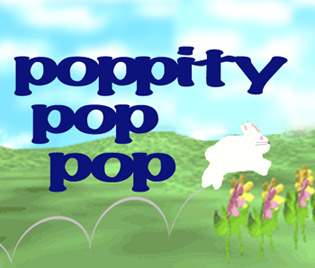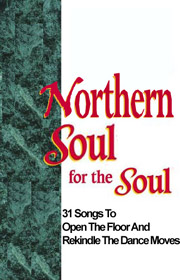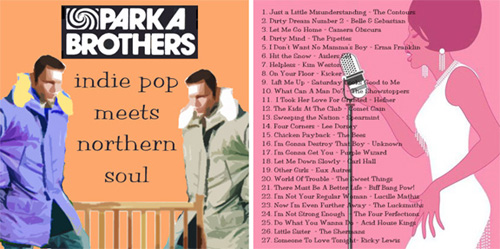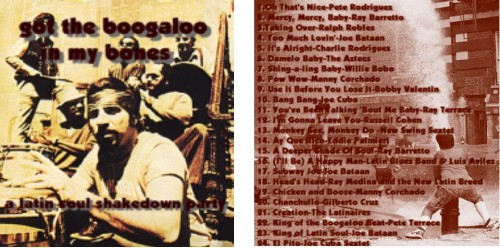Other Mixes By tep
Playlist
|
Alternative - Indie Rock
CD
|
Alternative - Indie Rock


CD
|
Blues - Classic Blues


CD
|
Mixed Genre


CD
|
Blues - Classic Blues

Got the Boogaloo in My Bones -- A Latin Soul Shakedown Party
Comment:
I have always associated hot summer days and nights with the funky boogaloo tracks of the 60s, so during these dog days, I felt inspired to make my own boogaloo mix.For whatever reason, there has never been a good boogaloo/latin soul compilation released in the United States. The major albums of the era, such as Joe Bataan's Subway Joe and Ray Barretto's Acid are only available as imports as well. So I dug through the crates to compile this 80 minute latin soul mix. These are all thick and juicy soul tracks, with none of the latin jazz/boogaloo-lite that sometimes is labeled boogaloo. Some were hits, some were obscure, but I'm sure they will all get you dancing.
Many people aren't quite familiar with boogaloo / latin soul, so here's a brief rundown:
Boogaloo, or Latin Soul, developed in 1966 and, though short-lived, served as a critical bridge between the demise of mambo and the emergence of salsa. It was born in the Latino and Black clubs of New York, where Latin musicians were encouraged to add more "soul" to the songs. The music was always considered a music "for the people." Several songs that eventually became hits were developed on the dance floor as the musicians responded to the crowd. Joe Cuba's 1966 hit, "Bang, Bang" was introduced as a vamp at the Palm Gardens Ballroom to get the audience's attention. The crowd found it irresistible. As the band improvised around the vamp, the people started shouting the "beat, beat" "she freak" chorus as they were dancing to the song.
The birth of boogaloo coincided with the closing of the Palladium, the major mambo club in New York City. Boogaloo became the first home-grown New York Latin music. In the past, Latin musicians looked toward Cuba for guidance, but by the mid-sixties, this became more and more difficult. For the first time, the Nuyorican musicians had to look within for inspiration. What resulted was the blending of Latin rhythms with English lyrics, hand claps, funky grooves and horns, and catchy choruses. As boogaloo gained popularity, many prominent successful Latin musicians, including Tito Puente and Eddie Palmieri, turned their noses up on boogaloo, which they saw as brash, unsophisticated, and too American, and they refused to play it. Palmieri referred to Boogaloo as "Latin bubblegum." But eventually it's popularity became too difficult to ignore, and both Puente and Palmieri recorded boogaloo tracks.
Boogaloo enjoyed some crossover success during its brief heyday. "Bang Bang," was on the Billboard charts for 10 weeks and Hector Rivera's "At the Party," made it to number 26 in 1967. Other modest commercial and radio hits included "El Pito (I'll Never Go Back to Georgia)," which originally appeared as a B-Side, and "Boogaloo Blues," by Johnny Colon. But the track the has outlived them all is Pete Rodriguez' "I Like it Like That," in part due to the Tito Nieves' 1998 remake that has appeared prominently in commercials.
Boogaloo disappeared as rapidly as it emerged. Many boogaloo performers feel that there was a conspiracy by booking agents, radio stations, and the Latin music establishment to push boogaloo out of the clubs and off of the airwaves. By 1969 boogaloo had vanished. It was replaced by a new style of Latin music that was without the English lyrics and funky influence of boogaloo. This new music, which would eventually be known as salsa, began to dominate the clubs and radio stations. With the support of Fania Records and the Latin music establishment, salsa became an international phenomenon, and boogaloo was relegated to merely being a "fad."
Feedback:
This looks very nice. I'm not familiar with boogaloo, but I'm surely going to check after seeing this.
This looks tasty. I'd love to trade for this if you're interested.
Fantastic, Fantastic mix! Would also love to trade. As a side note Vampi Soul has Re-released a bunch Boogaloo and latin jazz albums and is well worth checking out.
I think I need to hear this! Thanks for the detailed notes on a genre I know nothing about.
I would absolutely love to trade for this. This is fantastic stuff.
Let me know.
This is MoTW material, right here.
Let me know.
This is MoTW material, right here.
Ahhh, now we're talkin! Love it.
Great stufF!
Looks wonderful! Great work & notes :)



